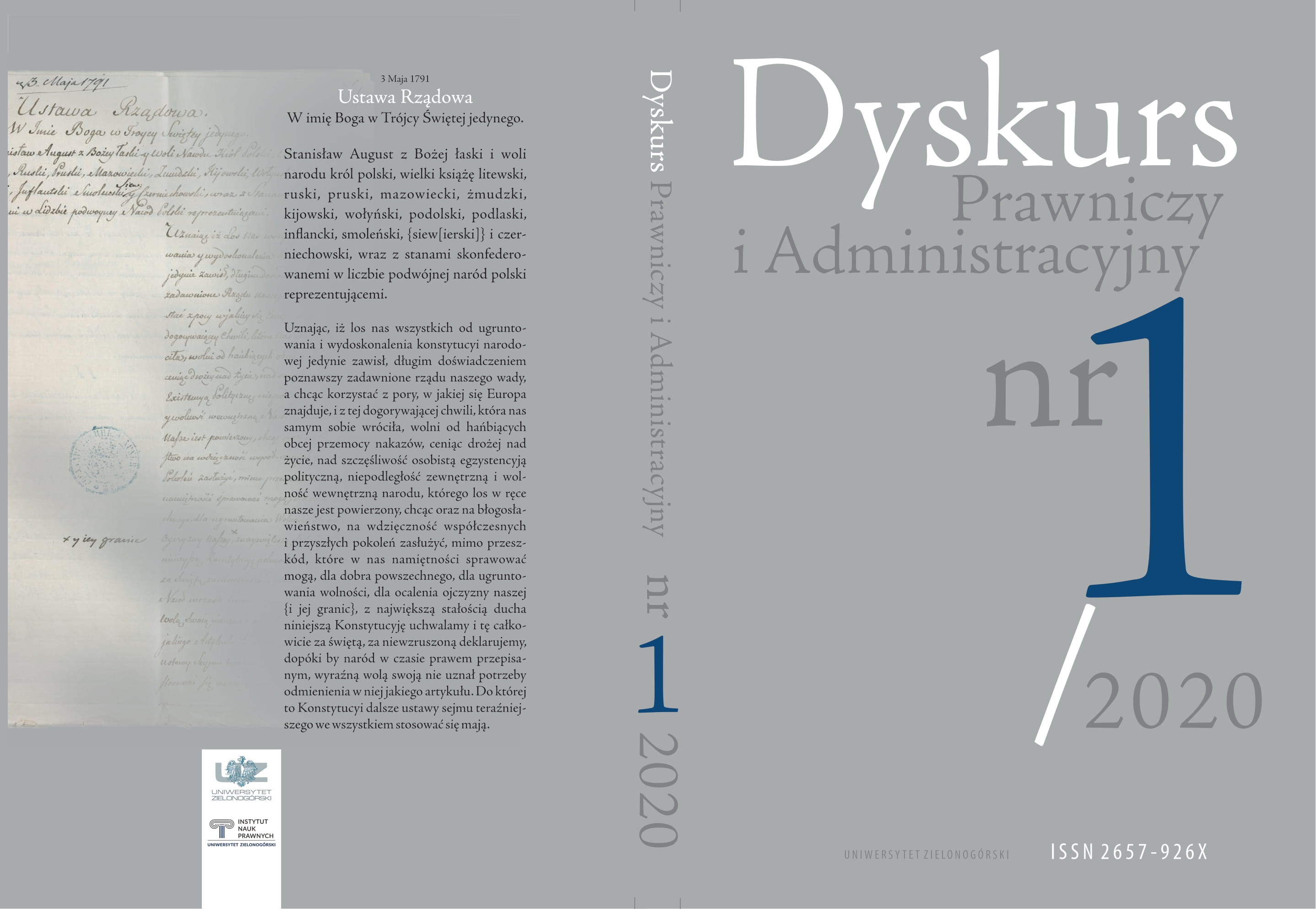Rhetorical invention and the staseis doctrine in the context of defensive speech composition
Keywords:
closing statements of the parties, defense speech in criminal trial, rhetorical invention, doctrine of staseis, right to courtAbstract
The article deals with the issue of the importance of the defense counsel’s closing speech in the criminal trial. The analysis of the issue of the composition of the defence speech is conducted in the perspective of rhetorical invention and the doctrine of staseis. The author observes that the phase of final statements, which is a separate stage of the trial, may be perceived as a fundamental guarantee of the right to be heard before a court, which is a constituent element of the principle of the right to a court and the principle of a fair trial, anchored in the constitutional plane in Article 45 paragraph 1 of the Polish Constitution and in the Convention area in Article 6 paragraph 1 of the ECHR. The considerations lead to the conclusion that through the final voices (speeches) of the parties and their representatives representing the opposing procedural interests, the essence of the procedural dispute and the legal dispute between the prosecutor and the accused becomes most evident. This dispute is the content of the criminal proceedings until the closing of the trial, after which there is already a judicial decision on the subject of the trial that is binding on the parties.
References
Arystoteles, Retoryka, [w:] Arystoteles, Retoryka. Retoryka dla Aleksandra. Poetyka, Warszawa 2004.
Barton S., Einführung in die Strafverteidigung, München 2013.
Brożek M., Wstęp, [w:] M. Fabiusz Kwintylian, Kształcenie mówcy, Księga I, II i X, Wrocław 2005.
Cichocka H. , „Sztuka retoryki: przewodnik encyklopedyczny”, Mirosław Korolko, Warszawa 1990 [recenzja], „Pamiętnik literacki: czasopismo kwartalne poświęcone historii i krytyce literatury polskiej” 1991, nr 82/4.
Gondek M.J., Aktualność retoryki sądowniczej na przykładzie metodyki argumentacyjnej statusu domniemania i narratio, [w:] Dyskrecjonalność w sprawach z udziałem przedsiębiorców. Zagadnienia teorii i praktyki, pod red. M. Dębińskiego, R. Pelewicza i T. Rakoczego, Tarnobrzeg 2015.
Grzegorczyk T., Tylman J., Polskie postępowanie karne, Warszawa 2014.
Hermogenes, Sztuka retoryczna, Lublin 2012.
Korolko M., Sztuka retoryki: przewodnik encyklopedyczny, Warszawa 1990.
Lewiński P., Psychologia społeczna czy retoryka empiryczna, „Linguistische Treffen in Wrocław” 2019, vol. 16 (II).
Maryański H., Kult żywego słowa. Studjum o wymowie i rodzajach krasomówstwa, Warszawa 1929.
Marek A., Satko J., Okoliczności wyłączające bezprawność czynu, Warszawa 2000.
Marszał K., [w:] J. Zagrodnik (red.), Proces karny, Warszawa 2019.
Meyer M., [w:] M. Meyer, M.M. Carrilho, B. Timmermans, Historia retoryki od Greków do dziś, Warszawa 2010.
Perelman Ch., Logika prawnicza. Nowa retoryka, Warszawa 1984.
Platon, Fajdros, Kęty 2005.
Podbielski H., Wstęp Tłumacza, [w:] Arystoteles, Retoryka. Retoryka dla Aleksandra. Poetyka, Warszawa 2004.
Podbielski H., [w:] Hermogenes, Sztuka retoryczna, Lublin 2012.
Walter T., Kleine Rhetorikschule für Juristen, München 2009.
Zoll A., [w:] A. Zoll (red.) Kodeks karny. Komentarz do art. 1-116, Kraków 2004.
Published
How to Cite
Issue
Section

This work is licensed under a Creative Commons Attribution-NonCommercial-NoDerivatives 4.0 International License.



